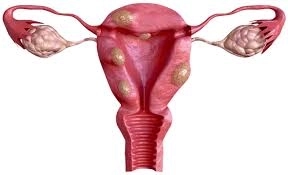
Symptoms and Treatment of Uterine Fibroids
Published on: 2025-06-14 | Written by: Dr. Asmaa Fathy, Consultant Obstetrician and Gynecologist
Uterine fibroids are among the most common benign tumors affecting women of reproductive age. While they are typically non-cancerous, they can cause troublesome symptoms and, in some cases, lead to fertility issues or complications with the menstrual cycle.
In this article, Dr. Asmaa Fathy explains the symptoms, causes, diagnosis, and modern treatment options available for uterine fibroids.
What Are Uterine Fibroids?
Uterine fibroids are benign muscle growths that develop in the wall of the uterus. Their size and location can vary. Some women may have fibroids without any symptoms, while others experience significant discomfort due to their size or position.
Common Symptoms of Uterine Fibroids
According to Dr. Asmaa Fathy, not all women experience symptoms, but when present, the most common include:
-
Heavy menstrual bleeding
-
Pelvic pain or pressure
-
Long or irregular periods
-
Frequent urination or difficulty emptying the bladder
-
Pain during intercourse
-
A feeling of fullness or heaviness in the abdomen
-
Constipation
-
Infertility or delayed conception
Causes of Uterine Fibroids
Although the exact cause is not fully understood, several factors may contribute to fibroid development:
-
Hormonal imbalance (especially estrogen and progesterone)
-
Genetics and family history
-
Obesity or excessive weight gain
-
Early onset of menstruation
-
High-fat diets or processed foods
How Are Fibroids Diagnosed?
Dr. Asmaa Fathy uses a variety of diagnostic methods, including:
-
Pelvic examination
-
Ultrasound imaging
-
Magnetic Resonance Imaging (MRI) for detailed assessment
-
Hysteroscopy or laparoscopy in complex cases
Treatment Options for Uterine Fibroids
Treatment depends on the size and location of the fibroid, symptoms, the patient's age, and whether she plans to have children. Dr. Asmaa Fathy outlines the main approaches:
1. Medical Treatment
-
Hormonal therapy to shrink fibroids
-
Pain relievers and medications to control bleeding
-
Iron supplements for anemia due to blood loss
2. Non-Surgical Options
-
Uterine fibroid embolization (UFE)
-
High-Intensity Focused Ultrasound (HIFU)
3. Surgical Treatment
-
Myomectomy (removal of fibroids while preserving the uterus)
-
Hysterectomy (removal of the uterus) for severe or non-fertility cases
Dr. Asmaa Fathy’s Tips for Prevention and Follow-up
-
Regular gynecological check-ups
-
Maintaining a healthy weight
-
Avoiding inflammation-triggering foods
-
Exercising regularly
-
Managing hormonal imbalances early

